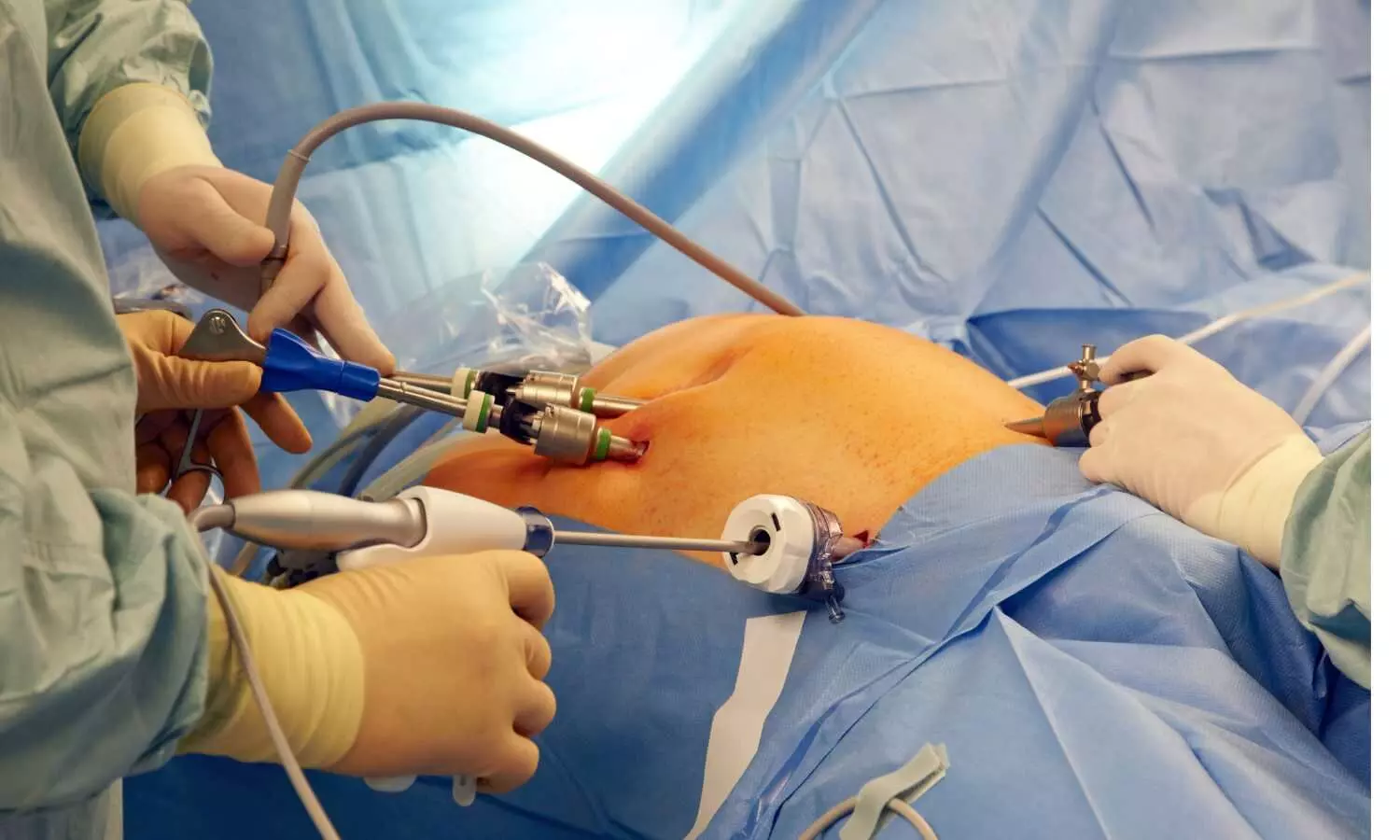- Home
- Medical news & Guidelines
- Anesthesiology
- Cardiology and CTVS
- Critical Care
- Dentistry
- Dermatology
- Diabetes and Endocrinology
- ENT
- Gastroenterology
- Medicine
- Nephrology
- Neurology
- Obstretics-Gynaecology
- Oncology
- Ophthalmology
- Orthopaedics
- Pediatrics-Neonatology
- Psychiatry
- Pulmonology
- Radiology
- Surgery
- Urology
- Laboratory Medicine
- Diet
- Nursing
- Paramedical
- Physiotherapy
- Health news
- Fact Check
- Bone Health Fact Check
- Brain Health Fact Check
- Cancer Related Fact Check
- Child Care Fact Check
- Dental and oral health fact check
- Diabetes and metabolic health fact check
- Diet and Nutrition Fact Check
- Eye and ENT Care Fact Check
- Fitness fact check
- Gut health fact check
- Heart health fact check
- Kidney health fact check
- Medical education fact check
- Men's health fact check
- Respiratory fact check
- Skin and hair care fact check
- Vaccine and Immunization fact check
- Women's health fact check
- AYUSH
- State News
- Andaman and Nicobar Islands
- Andhra Pradesh
- Arunachal Pradesh
- Assam
- Bihar
- Chandigarh
- Chattisgarh
- Dadra and Nagar Haveli
- Daman and Diu
- Delhi
- Goa
- Gujarat
- Haryana
- Himachal Pradesh
- Jammu & Kashmir
- Jharkhand
- Karnataka
- Kerala
- Ladakh
- Lakshadweep
- Madhya Pradesh
- Maharashtra
- Manipur
- Meghalaya
- Mizoram
- Nagaland
- Odisha
- Puducherry
- Punjab
- Rajasthan
- Sikkim
- Tamil Nadu
- Telangana
- Tripura
- Uttar Pradesh
- Uttrakhand
- West Bengal
- Medical Education
- Industry
Women with history of bariatric surgery had lower pregnancy weight gain than matched controls: JAMA

In a groundbreaking nationwide study conducted in Sweden from 2014 to 2021, researchers delved into the intricate relationship between pregnancy weight gain and the history of bariatric surgery. The study found that women who underwent bariatric surgery had lower weight gain in pregnancy than women who did not undergo surgery. The study results were published in the journal JAMA Network Open.
The increasing global prevalence of obesity in reproductive-age women poses maternal and fetal health risks. Bariatric surgery, notably gastric bypass and sleeve gastrectomy, is a primary treatment. Previous studies indicate reduced risks for certain complications, but concerns remain about postoperative pregnancy weight gain. This Swedish nationwide study aims to compare pregnancy weight gain among women with a history of bariatric surgery against those without. The investigation delves into potential variations based on surgical procedure, surgery-to-conception interval, and surgery-to-conception weight loss, addressing existing gaps in understanding.
The nationwide, population-based matched cohort study encompassing 12,776 pregnancies, aimed to shed light on how bariatric surgery influences pregnancy outcomes and whether factors such as surgical procedure, surgery-to-conception interval, and weight loss play crucial roles. This population-based study in Sweden (2014–2021) matched singleton pregnancies with a history of bariatric surgery to those without, employing a 1:1 propensity score matching based on various factors. Data analysis spanned from November 2022 to May 2023. The main outcome was to measure pregnancy weight gain was standardized by gestational age into early-pregnancy BMI-specific z scores.
Findings:
- The findings, unveiled through meticulous analysis, revealed a compelling connection between a woman's history of bariatric surgery and her pregnancy weight gain.
- Notably, across all early-pregnancy BMI categories, women with a history of bariatric surgery exhibited lower pregnancy weight gain compared to their counterparts without such surgical history.
- The study categorized BMI into normal weight, overweight, and various obesity classes, highlighting that the disparities in pregnancy weight gain were consistently evident.
- One of the key revelations was that the choice of surgical procedure did not significantly alter the observed patterns of pregnancy weight gain. Whether individuals underwent gastric bypass or sleeve gastrectomy, the impact on pregnancy weight gain remained consistent.
- The study also explored the temporal aspect, investigating the influence of the surgery-to-conception interval. Intriguingly, a shorter surgery-to-conception interval, particularly within the first year, was associated with lower pregnancy weight gain. This temporal factor emerged as a crucial variable, suggesting that the timing of conception relative to bariatric surgery plays a pivotal role in shaping pregnancy outcomes.
- Furthermore, the study highlighted the correlation between surgery-to-conception weight loss and pregnancy weight gain. Notably, a lower surgery-to-conception weight loss was linked to reduced pregnancy weight gain, contributing another layer to the intricate relationship between bariatric surgery history and maternal weight dynamics during pregnancy.
In essence, this nationwide matched cohort study provides comprehensive insights into the nuanced association between bariatric surgery and pregnancy weight gain. The research not only challenges prevailing assumptions but also emphasizes the multifaceted nature of this relationship, encouraging a more nuanced approach to understanding the impact of bariatric surgery on pregnancy outcomes. As medical science continues to unravel the complexities of these interactions, this study marks a significant step forward in bridging gaps in knowledge and guiding future research and clinical practices.
Further reading: Xu H, Holowko N, Näslund I, et al. Pregnancy Weight Gain After Gastric Bypass or Sleeve Gastrectomy. JAMA Netw Open. 2023;6(12):e2346228. doi:10.1001/jamanetworkopen.2023.46228
BDS, MDS
Dr.Niharika Harsha B (BDS,MDS) completed her BDS from Govt Dental College, Hyderabad and MDS from Dr.NTR University of health sciences(Now Kaloji Rao University). She has 4 years of private dental practice and worked for 2 years as Consultant Oral Radiologist at a Dental Imaging Centre in Hyderabad. She worked as Research Assistant and scientific writer in the development of Oral Anti cancer screening device with her seniors. She has a deep intriguing wish in writing highly engaging, captivating and informative medical content for a wider audience. She can be contacted at editorial@medicaldialogues.in.
Dr Kamal Kant Kohli-MBBS, DTCD- a chest specialist with more than 30 years of practice and a flair for writing clinical articles, Dr Kamal Kant Kohli joined Medical Dialogues as a Chief Editor of Medical News. Besides writing articles, as an editor, he proofreads and verifies all the medical content published on Medical Dialogues including those coming from journals, studies,medical conferences,guidelines etc. Email: drkohli@medicaldialogues.in. Contact no. 011-43720751




